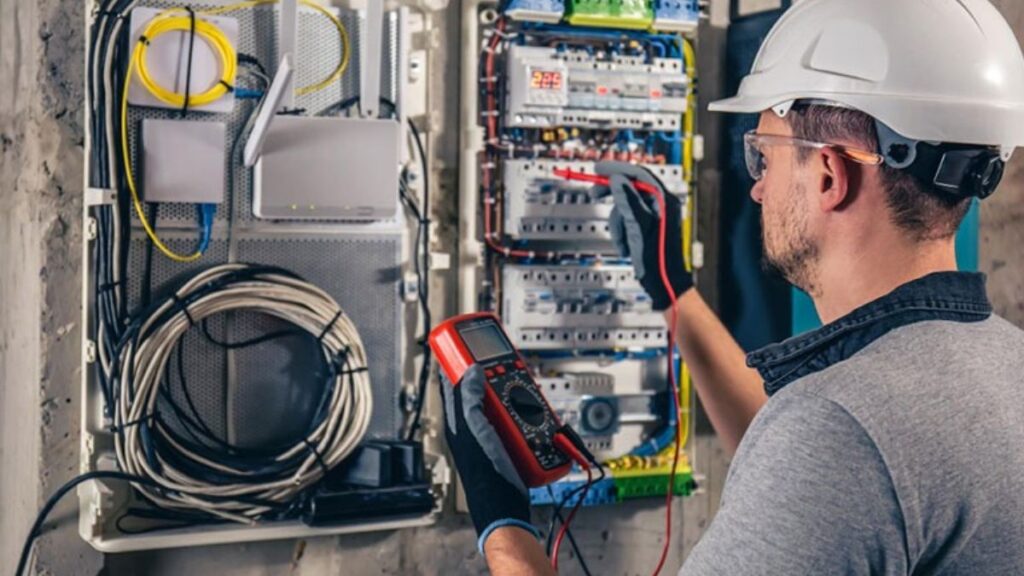Renovating your home in Singapore is an exciting opportunity to refresh your space, whether it’s modernizing an older property or reimagining a more contemporary home. While most homeowners focus on the aesthetic elements of the renovation—like choosing the right paint colors, flooring, or furniture—there’s one aspect that is often overlooked but equally critical: electrical planning.
Electrical planning is not just about deciding where to place light fixtures and electrical outlets. It’s a fundamental part of your home’s overall design that affects safety, functionality, and future-proofing. In a city like Singapore, where living standards are high and technology plays a central role in daily life, a well-thought-out electrical plan is essential to ensure that your home remains safe, efficient, and adaptable.
The Importance of Electrical Planning in Singapore
In Singapore, safety is a top priority, and electrical safety is no exception. Faulty or outdated electrical wiring can lead to serious hazards such as electrical fires or electrocution. To avoid these risks, it’s essential to hire a licensed electrician Singapore. According to the Building and Construction Authority (BCA) of Singapore, all electrical work must be carried out by licensed electricians, and it’s important to comply with these regulations to ensure the safety of your home and family.
While the aesthetic part of renovation is important, neglecting the electrical aspects can turn your dream home into a potential danger zone. For instance, old electrical wiring, overloaded circuits, or improper installations can lead to accidents that could have been avoided with proper electrical planning.
Upgrading Your Electrical System to Modern Standards
In older Singaporean homes, particularly those built before the 1990s, electrical systems may be outdated and no longer meet the demands of modern living. These homes often feature wiring that was designed to handle fewer electrical appliances and lower loads. In today’s world, with multiple devices charging at once, energy-hungry appliances like air conditioners and water heaters, and the rise of smart home technology, the electrical system needs to be able to handle more power.
Upgrading your electrical system during your renovation ensures that your home can support modern appliances without the risk of overloading circuits or damaging sensitive devices. Consider upgrading your electrical panel, which is the heart of your home’s electrical system, to ensure that it can handle the higher demands of today’s energy usage. Adding additional circuits for specific high-powered appliances like air conditioners or home entertainment systems is also a smart investment.
Future-Proof Your Home with Smart Electrical Planning
Another crucial element of electrical planning is anticipating future needs. When renovating, it’s easy to focus on your current lifestyle, but it’s essential to think about your future electrical requirements. For example, the rise of smart home technology, such as smart lighting, thermostats, and security systems, means that your home may require more power points or specialized wiring in the future.
Incorporating the space and wiring for these devices during the renovation stage will save you time and money down the road. For instance, adding extra power outlets and USB charging ports in strategic locations, such as living rooms, bedrooms, and the kitchen, can prevent the hassle of extension cords and ensure you have easy access to power as your tech-savvy lifestyle evolves.
Think about the layout of your home and how you’ll be using your spaces in the future. Do you plan to turn a room into a home office or entertainment area? Make sure the electrical plan includes the necessary outlets, lighting, and cable management for your needs.
Energy Efficiency: Reducing Costs and Carbon Footprint
Energy efficiency is not just about saving money—it’s also about contributing to sustainability, which is a key value in Singapore’s drive for a greener future. As electricity prices rise and environmental concerns become more pressing, having an energy-efficient home can significantly lower your utility bills and reduce your carbon footprint.
During your renovation, consider energy-efficient solutions such as LED lighting, smart thermostats, and energy-saving appliances. LED bulbs consume less energy and last longer than traditional incandescent lights, which means fewer replacements and lower electricity costs. Installing a smart thermostat allows you to optimize your air conditioning system by adjusting the temperature when you’re not at home, ultimately saving on energy bills. Additionally, you can look into installing solar panels to take advantage of Singapore’s sunny climate, which could further reduce your dependence on the grid.
The Singapore government encourages sustainable living, and investing in energy-efficient electrical solutions is one way you can contribute to that initiative while also saving money in the long run.
The Role of Professional Electricians in Your Renovation
Electrical planning is not a DIY project. It requires the expertise of a licensed and experienced electrician who understands the specific electrical standards and regulations in Singapore. A professional electrician will help you design an electrical system that meets safety requirements while also being tailored to your needs.
Working with a licensed electrician ensures that your electrical system is installed correctly and complies with local regulations. They will help you identify potential issues with your current system and suggest upgrades that align with your lifestyle. In Singapore, only licensed electricians are legally permitted to carry out electrical installations, repairs, and modifications, so it’s crucial to hire someone who is qualified to do the job.
A qualified electrician will also ensure that your home’s electrical system is integrated with the latest technology. They can guide you in selecting the right equipment and solutions that fit your renovation plans and help you stay within budget.
Common Electrical Issues in Singapore Homes
During your renovation, you may encounter some common electrical issues that can arise in older homes. These include:
- Overloaded circuits: In older homes, circuits may not be designed to handle modern electrical loads. This can cause frequent tripping or even damage to your appliances. Upgrading your circuits can prevent this.
- Insufficient outlets: Older homes often have a limited number of power outlets, which can be inconvenient in today’s world of smartphones, laptops, and other electronics. Adding extra outlets during the renovation process can make your home more functional and user-friendly.
- Outdated electrical panels: An outdated electrical panel can’t handle the demands of modern appliances and electronics. It’s essential to upgrade your panel to ensure it meets the electrical requirements of today’s appliances.
- Worn-out or faulty wiring: Over time, the wiring in older homes can deteriorate, which poses a serious safety risk. Having your wiring checked by a professional and replaced if necessary is vital.
Conclusion
Renovating your home in Singapore is an exciting process, but it’s important not to overlook the electrical planning. A well-designed electrical system ensures that your home is safe, functional, and capable of supporting your needs now and in the future. Whether it’s upgrading outdated wiring, adding extra outlets, or incorporating energy-efficient solutions, proper electrical planning will give you peace of mind and help create a home that meets the demands of modern living.
Don’t cut corners when it comes to electrical work—hire a licensed professional to ensure your home’s electrical system is up to standard and future-proofed for the technologies of tomorrow. By investing in the right electrical planning during your renovation, you’re setting yourself up for a safer, more efficient, and more comfortable home.



